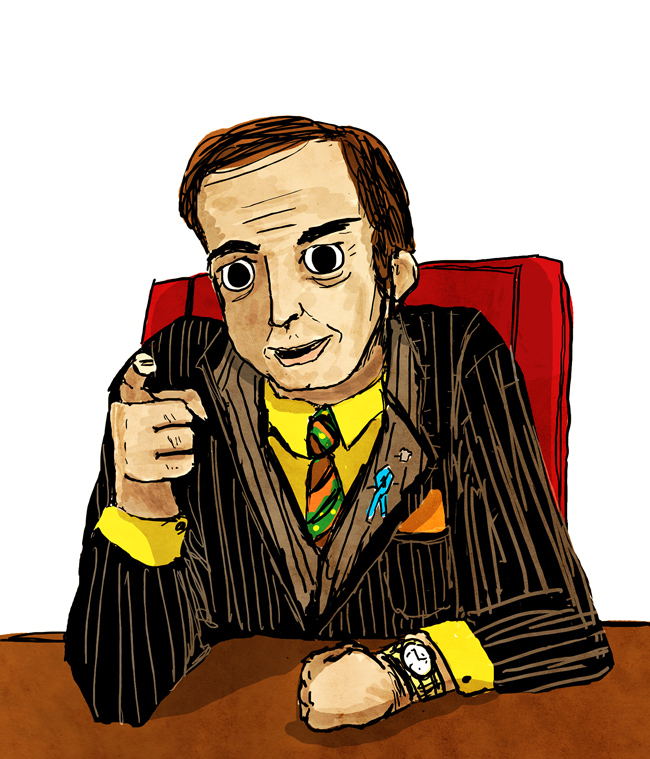Last night, Vince Gilligan’s criminal epic “Breaking Bad” brought Walter White’s devastating saga of drugs, lies and fried chicken franchises to its bloody conclusion. For many TV enthusiasts, the end of “Breaking Bad” heralds the end of an addiction, similar to the effect of that crystal blue persuasion that our beloved evil chemist cooks week after week. The withdrawal is going to be difficult, and what better way to combat its effects than by examining one of the series’ most enigmatic characters: everyone’s favorite lawyer, Saul Goodman. The show introduced Saul in the second season when our morally deteriorating protagonist, Walter, was forced to seek legal advice as his fledgling drug empire began to draw attention from the Drug Enforcement Administration.
Unlike Walt, Saul remains relatively static throughout the run of the series. He never faces an internal crisis, nor does he ever champion a certain moral cause or disposition. For the most part, the only purpose Saul appears to serve is that of the typical, but petty, comic relief.
But Saul is actually the immoral center of the show. When Walt is in a pinch, who is the first one to suggest the easy way out, the method that damns the soul? Who is the one that finds a man willing to be paid to go to prison for Walt? Who is the one that compares his own client, Jesse Pinkman, to a rabid dog that needs to be put down? From the beginning, Saul has always been the devil on Walt’s shoulder, constantly persuading him to give in to his worst impulses until he’s fully transformed into Heisenberg, ruthless killer and drug lord.
So why is it that we typecast Saul as the comic relief character? If anything, we should view this man as a tragic figure so numbed to the idea of morality that he feels virtually nothing. Unlike Walt, Saul broke bad a long time ago. He sold his soul for crime and made a good deal of profit out of it, but what comes next? We know that Walt’s story is coming to an end, but what of Saul’s?
Though Saul’s role in “Breaking Bad” ended with him relocating to Omaha, Neb. — perhaps to someday manage a Cinnabon — the Internet has been abuzz with AMC’s confirmation of “Better Call Saul,” a spin-off television series based solely on Goodman’s character. For fans of the character, this is a godsend. As a character in someone else’s story, Saul’s psyche has never been the audience’s main focus, and the chance to learn why this man’s sense of right and wrong is so hopelessly twisted is an exciting prospect. As Walter’s story draws to a close, our best hope of combating “Breaking Bad” addiction withdrawals lies in the unlikely hands of Saul, the character that put the ‘criminal’ in criminal lawyer.





















